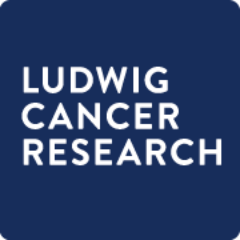
On September 3, 2025, researchers from the Princeton Branch of the Ludwig Institute for Cancer Research revealed significant findings regarding the mechanisms that allow breast cancer to metastasize to bone. This research highlights how tumors in the bone disrupt blood cell production, leading to anemia, a common complication in patients with metastatic breast cancer.
Breast cancer often spreads to the bone, where it creates hard-to-treat tumors that significantly worsen patient outcomes. Anemia, characterized by a deficiency in the oxygen-carrying capacity of blood, is a frequent result of these metastases. While it was previously thought that this anemia resulted solely from tumor interference with bone marrow function, the precise causes remained unclear until now.
New Insights into Tumor Behavior
In their study, Yibin Kang and Yujiao Han led a team of researchers to investigate the specific niche within the bone marrow where these tumors thrive. They discovered two critical strategies employed by breast cancer cells to secure the metabolic resources necessary for growth in the low-oxygen environment of bone marrow.
These adaptations directly impair the functionality of specialized bone marrow cells responsible for producing red blood cells. “Targeting these metabolic transactions between cancer cells and specialized cells of the bone marrow microenvironment could lead to novel therapies that disrupt tumor growth while preserving bone marrow function and alleviating anemia,” said Kang.
Metastasis poses significant challenges for cancer cells, as only a few within a given tumor possess the ability to migrate and adapt to new environments. Successful metastasis requires cancer cells to not only survive the journey through difficult terrain but also to mimic local cells to meet the metabolic demands of their new surroundings. This often includes fostering relationships with nearby noncancerous cells.
Iron Acquisition and Mimicry in Cancer Cells
A key finding of the study involves the role of erythroblast island (EBI) macrophages, a specialized type of immune cell that recycles iron in the bone marrow. These macrophages were found to cluster around cancer cells in the metastatic niche. In healthy bone marrow, EBI macrophages assist in providing iron to erythroblasts, the precursors to red blood cells, which is essential for hemoglobin production.
“We found that EBI macrophages are hijacked by metastatic breast tumor cells to acquire iron, depriving erythroblasts of a mineral essential to the production of red blood cells,” explained Han. “Depleting these macrophages in mice impaired bone metastasis of breast cancer.”
The researchers also observed similar macrophages in human bone metastases from lung and kidney cancers, suggesting that this mechanism may be widespread among cancers that spread to bone.
With a ready source of iron obtained from the macrophages, cancer cells began to mimic erythroblasts by expressing a component of hemoglobin known as β-globin. This adaptation helps them survive in the hypoxic conditions of the bone marrow. The study found that elevated β-globin expression in tumor cells correlates with an increased risk of bone metastasis.
The interplay between hijacking EBI macrophages and mimicking erythroblasts creates a feedback loop that exacerbates anemia. By monopolizing local iron supplies, cancer cells diminish the production of red blood cells, which further weakens erythroblast function.
“Our work illustrates the remarkable plasticity of metastatic cells that grow in the bone and identifies a potential mechanism underlying the anemia caused by such metastases,” said Kang. These findings could inform the development of new therapies aimed at improving patient survival and quality of life.
This research received support from the American Cancer Society, the Charles H. Revson Foundation, the Brewster Foundation, the Breast Cancer Research Foundation, and the Susan G. Komen Foundation. In addition to his role at the Ludwig Institute, Yibin Kang serves as the Warner-Lambert/Parke-Davis Professor of Molecular Biology at Princeton University and is an Associate Director of the Rutgers Cancer Institute of New Jersey.





